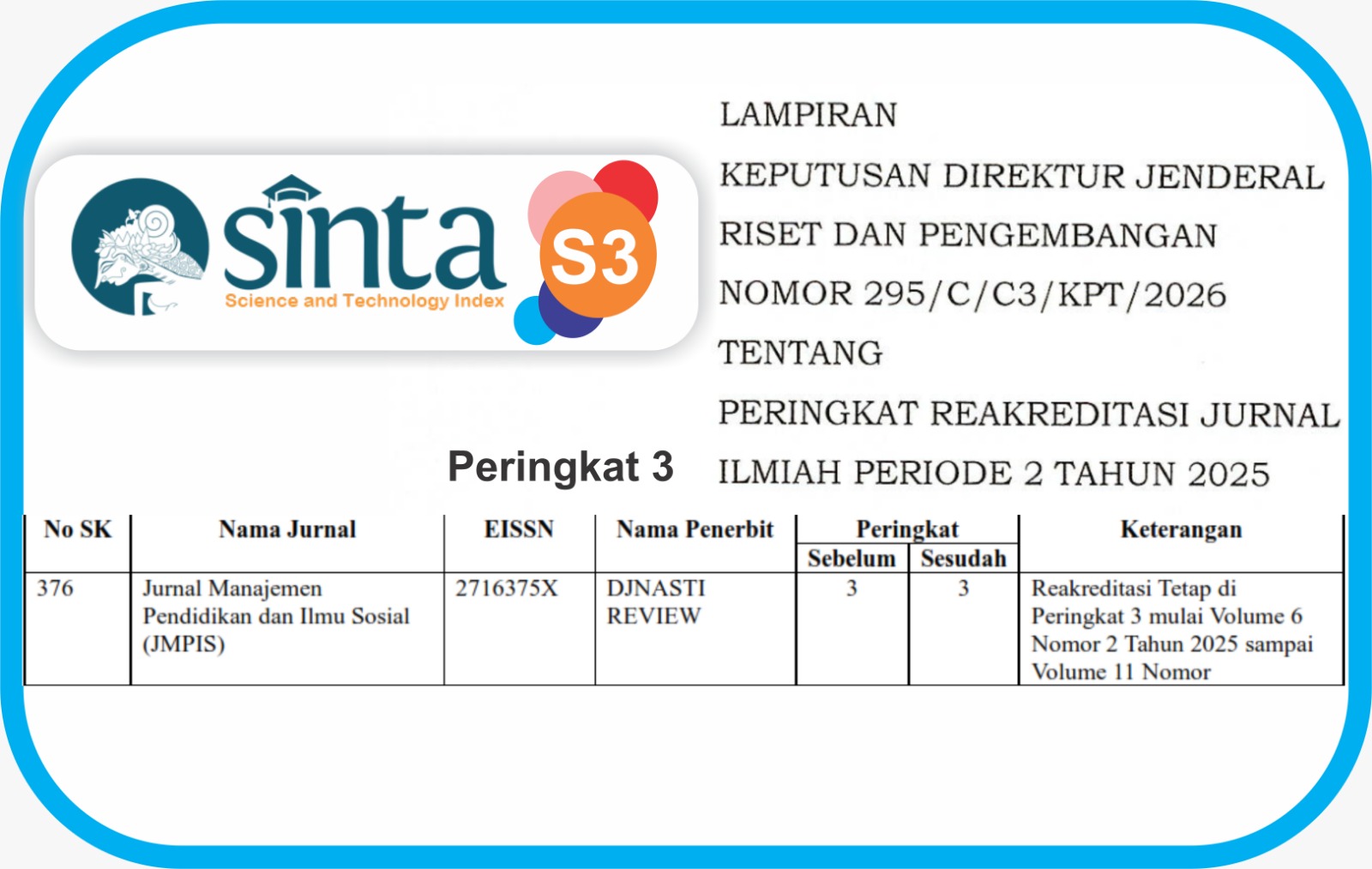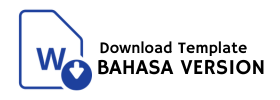Pengaruh Motivasi, Penghargaan, dan Kerjasama Tim Terhadap Prestasi Akademik Siswa
DOI:
https://doi.org/10.38035/jmpis.v5i6.2915Keywords:
Prestasi Akademik Mahasiswa, Minitab 17, Universitas, Motivasi, PenghargaanAbstract
Penelitian ini bertujuan untuk mengkaji pengaruh motivasi, penghargaan, dan kolaborasi terhadap pencapaian akademik mahasiswa. Fokus penelitian ini adalah mahasiswa pascasarjana di Sekolah Pascasarjana Universitas Airlangga, dengan sampel sebanyak 111 responden. Penelitian ini menggunakan survei eksplanatori dengan metodologi kuantitatif. Alat penelitian yang digunakan berupa kuesioner dengan skala Likert 5 poin. Data dianalisis menggunakan regresi linier berganda melalui perangkat lunak Minitab 17. Temuan penelitian menunjukkan bahwa ketiga variabel independen, yaitu motivasi, penghargaan, dan kerja sama, secara kolektif memberikan pengaruh positif terhadap pencapaian akademik mahasiswa, yang menyumbang 99,12% dari efek tersebut. Motivasi memberikan pengaruh signifikan terhadap pencapaian akademik, diikuti oleh kerja sama dan penghargaan. Penelitian ini menyimpulkan bahwa peningkatan motivasi, penghargaan, dan kolaborasi secara substansial akan meningkatkan pencapaian akademik mahasiswa.
References
Agustina, E. T., Wahyudin, A. Y., & Pratiwi, A. A. (2021). The Students’motivation And Academic Achievement At Tertiary Level: A Correlational Study. Journal of Arts and Education, 1(1).
Alamri, M. M. (2023). A model of e-learning through achievement motivation and academic achievement among university students in Saudi Arabia. Sustainability, 15(3), 2264.
Alsheeb, M. E. H., Awae, F., Nasir, B. B. M., ALqelan, M. A. R., & Abuhassna, H. (2022). The Impact of the Positive Reinforcement Process and Participatory Leadership Style on Teacher Productivity in Qatari Schools. International Journal of Academic Research in Progressive Education and Development, 11(2).
Anwar, K., Asari, S., Husniah, R., & Asmara, C. H. (2021). Students' Perceptions of Collaborative Team Teaching and Student Achievement Motivation. International Journal of Instruction, 14(1), 325-344.
Awasthy, R., Flint, S., Sankarnarayana, R., & Jones, R. L. (2020). A framework to improve university–industry collaboration. Journal of Industry-University Collaboration, 2(1), 49-62.
Bhushan, S., Kumar, A., Pandey, A. P., & Singh, S. (2023). Estimation of population mean in presence of missing data under simple random sampling. Communications in Statistics-Simulation and computation, 52(12), 6048-6069.
Chen, C. H., Yang, C. K., Huang, K., & Yao, K. C. (2020). Augmented reality and competition in robotics education: Effects on 21st century competencies, group collaboration and learning motivation. Journal of computer assisted learning, 36(6), 1052-1062.
Fahd, K., Venkatraman, S., Miah, S. J., & Ahmed, K. (2022). Application of machine learning in higher education to assess student academic performance, at-risk, and attrition: A meta-analysis of literature. Education and Information Technologies, 1-33.
Gimbert, B. G., Miller, D., Herman, E., Breedlove, M., & Molina, C. E. (2023). Social emotional learning in schools: The importance of educator competence. Journal of Research on Leadership Education, 18(1), 3-39.
Herrera-Pavo, M. Á. (2021). Collaborative learning for virtual higher education. Learning, culture and social interaction, 28, 100437.
Johnson, R. B., & Christensen, L. B. (2024). Educational research: Quantitative, qualitative, and mixed approaches. Sage publications.
Liu, I. F. (2020). The impact of extrinsic motivation, intrinsic motivation, and social self-efficacy on English competition participation intentions of pre-college learners: Differences between high school and vocational students in Taiwan. Learning and motivation, 72, 101675.
Lynam, S., Cachia, M., & Stock, R. (2024). An evaluation of the factors that influence academic success as defined by engaged students. Educational Review, 76(3), 586-604.
Mega, C., Ronconi, L., & De Beni, R. (2014). What makes a good student? How emotions, self-regulated learning, and motivation contribute to academic achievement. Journal of educational psychology, 106(1), 121.
Osborne, J. W., & Jones, B. D. (2011). Identification with academics and motivation to achieve in school: How the structure of the self influences academic outcomes. Educational Psychology Review, 23, 131-158.
Prada, E. D., Mareque, M., & Pino-Juste, M. (2022). Teamwork skills in higher education: is university training contributing to their mastery?. Psicologia: Reflexao e critica, 35, 5.
Ryan, R. M., & Deci, E. L. (2020). Intrinsic and extrinsic motivation from a self-determination theory perspective: Definitions, theory, practices, and future directions. Contemporary educational psychology, 61, 101860.
Schaeper, H. (2020). The first year in higher education: the role of individual factors and the learning environment for academic integration. Higher Education, 79(1), 95-110.
Vygotsky, L. S. (1978). Mind in society: The development of higher psychological processes (Vol. 86). Harvard university press.
Weyant, E. (2022). Research Design: Qualitative, Quantitative, and Mixed Methods Approaches: by John W. Creswell and J. David Creswell, Los Angeles, CA: SAGE, 2018, $38.34, 304pp., ISBN: 978-1506386706.
Yaldi, D., & Ariati, J. (2020). The effect of reward, punishment, interpersonal communication and discipline: economic course for social students context. Utamax: Journal of Ultimate Research and Trends in Education, 2(2), 44-49.
Yu, Z., Gao, M., & Wang, L. (2021). The effect of educational games on learning outcomes, student motivation, engagement and satisfaction. Journal of Educational Computing Research, 59(3), 522-546.
Downloads
Published
How to Cite
Issue
Section
License
Copyright (c) 2024 Dian Okta Yoshinta, Fendy Suhariadi, Suparto Wijoyo, Ian Firstian Aldhi

This work is licensed under a Creative Commons Attribution 4.0 International License.
Hak cipta :
Penulis yang mempublikasikan manuskripnya di jurnal ini menyetujui ketentuan berikut:
- Hak cipta pada setiap artikel adalah milik penulis.
- Penulis mengakui bahwa Jurnal Manajemen Pendidikan dan Ilmu Sosial (JMPIS) berhak menjadi yang pertama menerbitkan dengan lisensi Creative Commons Attribution 4.0 International (Attribution 4.0 International CC BY 4.0) .
- Penulis dapat mengirimkan artikel secara terpisah, mengatur distribusi non-eksklusif manuskrip yang telah diterbitkan dalam jurnal ini ke versi lain (misalnya, dikirim ke repositori institusi penulis, publikasi ke dalam buku, dll.), dengan mengakui bahwa manuskrip telah diterbitkan pertama kali di Jurnal Manajemen Pendidikan dan Ilmu Sosial (JMPIS).











































































